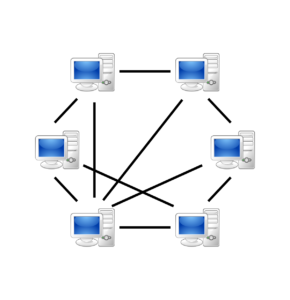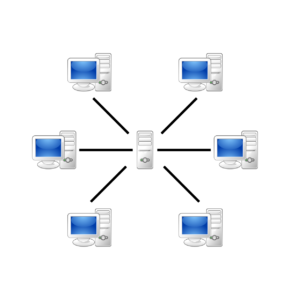The question of whether or not to have a server comes up often in small business. I see lots of local businesses struggling to get by without a server and in most cases, both productivity and IT costs would improve considerably if they had one, even considering the initial investment in server hardware and software.
First, I should define what a server is. Technically, a “server” is a concept rather than a tangible “thing”. The most basic definition of a server is something that provides or “serves” information. Take, for example, the Internet. When you type “www.google.com” into your browser, there are potentially dozens of servers involved with getting your computer to that page, not even including the final server that contains the actual search engine. The relationship between the server and the software you use to access it is called the “server-client relationship”. You may have heard terms such as “Email client” or “FTP client”. These are just general terms for different programs that handle the client or user-side of Email or FTP.
|
|
|
Hopefully that makes sense.
So why does a business need a server? It depends.
File Server
The most basic use of a server tends to be for file sharing. Servers dedicated to this are usually cleverly called “File Servers”. They can store important business information centrally like accounting files, document templates, images, videos, project files, invoice records. In short, any file you want, you can store there. And what’s more, you can secure them granularity. Let’s say you have sensitive business information for management eyes only, but everyone has access to the file server. No problem, you can use the server to group users together and deny them access to entire sections of the file server.
Why is that better than a workgroup or “peer to peer” network? In a network consisting entirely of workstations and no server, each computer can be a server and share files between devices. However, the process is unwieldy and notoriously difficult for most users. And even when done properly, for the information to be available, the workstation serving the information must be on. Furthermore, file sharing on an ad-hoc basis is inefficient both because it is not centrally managed but also it becomes almost impossible to find which file the most recent or “up to date” version. The same inefficiencies can apply to cloud-based storage services. And of course, having important business information stored in only one place on a workstation with no failsafe is never a good idea.
Backup Server
Another similar use of a file server is as a backup server. Technically this is an extension of the idea of the file server, but is especially useful in this case since it generally takes up a significant amount of space. While you may technically replace the traditional file server with a cloud-based service like Dropbox, it doesn’t typically afford you the space, speed, or flexibility of a local backup server.
Web Server
While I don’t typically recommend that small businesses host their own websites, there are some practical reasons to run a web server locally. Some billing applications are web-based, as are some proprietary industry applications. Or a business might run an “Intranet” or a Wiki to manage internal business information.
Database Server
Running a database server is very common even for small businesses. Whether it be a file-based database such as FileMaker or Microsoft Access, or service-based like MySQL, Oracle or Microsoft SQL Server. It doesn’t matter what the database contains. What matters is that it is contained in a central location that is potentially accessible from any computer on the network.
There are literally hundreds of other reasons to have a business server, but this covers the most common uses. The good news is most businesses do not need a beast of a server. Typically small businesses servers can run perfectly well with lower specs than the workstations that access them. A server takes care of a great deal of issues.


Leave a Reply
You must be logged in to post a comment.